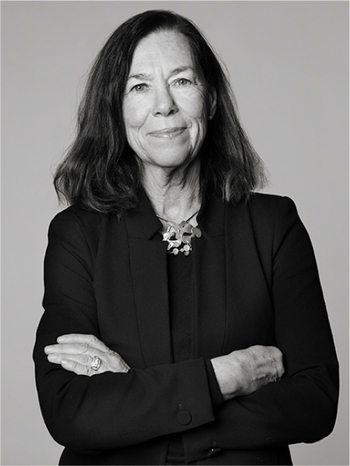Uno Åhrén
An Uno Åhrén chair, Svenskt Tenn, Sweden circa 1930.
Upholstered in red leather, mahogany legs.
Provenance
The Collection of Hjalmar Olson (1902-1990), Gustavsberg. Acquired from Estrid Ericson, Svenskt Tenn, Stockholm.
Hjalmar Olson was president of Gustavsberg Porcelain Factory 1937-1968, and a Vice Chairman of LKAB 1962-1973. He was elected in 1942 as a member of the Academy of Engineering Sciences, where he was 2nd Vice Chairman from 1954 to 1956, and was appointed as the first honorary member in 1963. He received his degree in 1962 honorary doctor of technology at the Royal Institute of Technology in Stockholm.
As an engineer he studied modern porcelain industry in Germany. This took him to Gustavsberg porcelain factory already in 1929.
With his great interest in art and craft, he built up a private collection where quality was always of utmost importance. With help from close friends like Estrid Ericson, owner of Svenskt Tenn, he created his collection during the middle of the 1900's.
Literature
Nils G. Wollin, 'Nutida Svensk konstslöjd i bild', Stockholm 1931, compare model, p 33: 'Skrivbord och stol, komp. av Uno Åhrén. Utförda av Hjalmar Jackson 1930. Tillhöra fröken Estrid Ericson'.
Christian Björk, 'Estrid Ericson -Svenska arkitekter och formgivare', Orosdi-Back, 2011. The model depicted at p 132, the image originally from the Svenskt Tenn archives.
Designer
Uno Åhrén was a Swedish architect who graduated from Tekniska Högskolan i Stockholm (the Royal Institute of Technology) in 1919. Uno Åhrén made his debut with a residential interior at the "Home Exhibition" at Liljevalchs in 1917. He was one of the earliest collaborators with Estrid Ericson at the Svenskt Tenn. Åhrén participated in the Paris World Fair in 1925 with a ladies' salon.
Åhrén, who would become one of the main advocates of functionalism, he only worked as a furniture designer at the beginning of his career. The late 1920s in Sweden were marked by Åhrén's radical thoughts and ideas; he was one of the most eager proponents of functionalism, including as a co-author of the publication "acceptera".
Åhrén's focus was primarily on the social perspective in housing issues. From the late 1910s onwards, Uno Åhrén participated in a number of industrial art exhibitions: in addition to the mentioned Home Exhibition in 1917, the Gothenburg Exhibition in 1923, the Paris World Fair in 1925, the Stockholm Exhibition in 1930, and the World Fair in Chicago in 1933. After 1930, Åhrén devoted himself mainly to urban architecture and city planning, including as a city planning architect in Gothenburg from 1932-43 and as the head of Svenska Riksbyggen during the 1940s. He is most renowned for his strong pathos as a driving debater in the social housing issue. For Svenskt Tenn, he designed both furniture and pewter objects of a more luxurious nature.











































